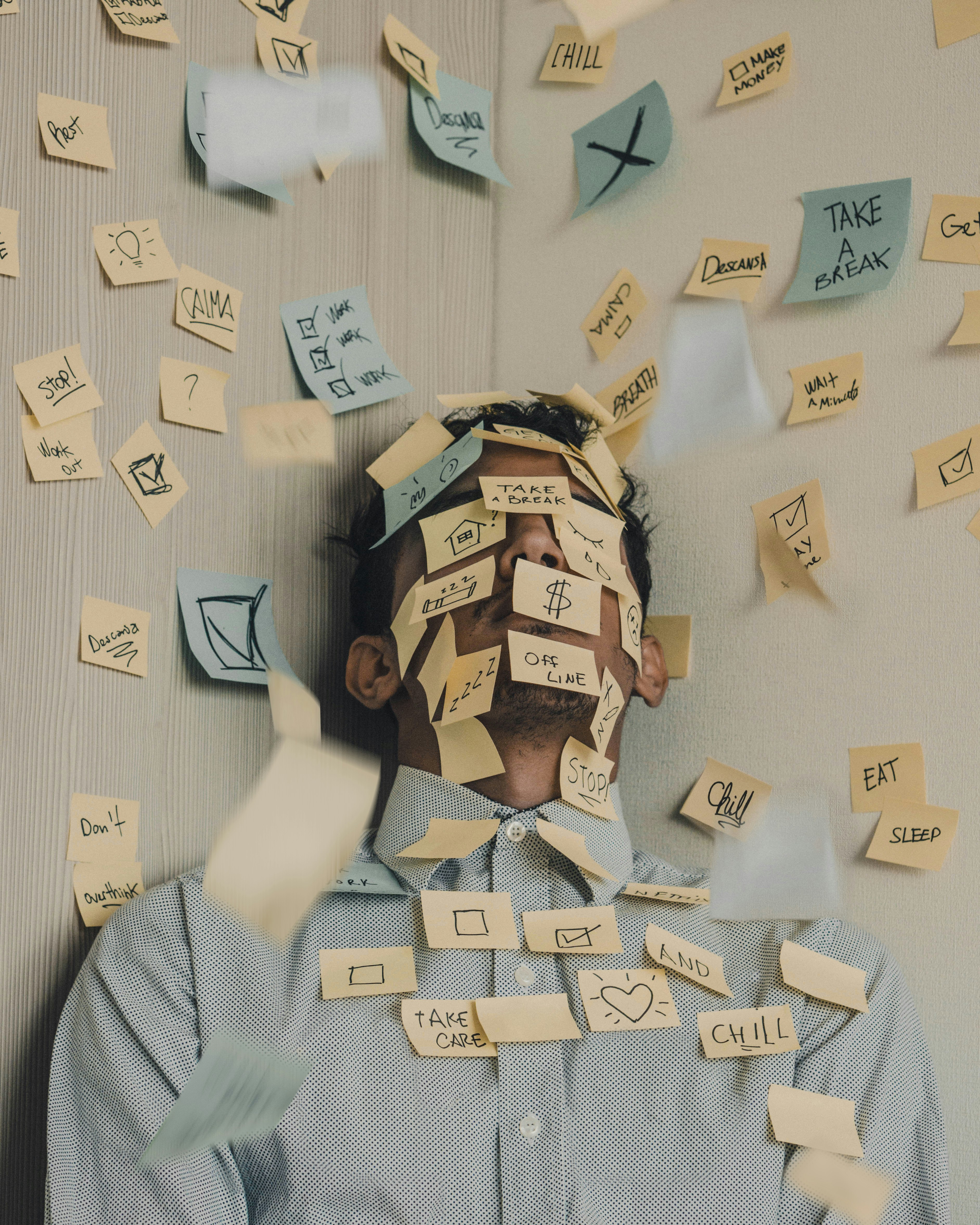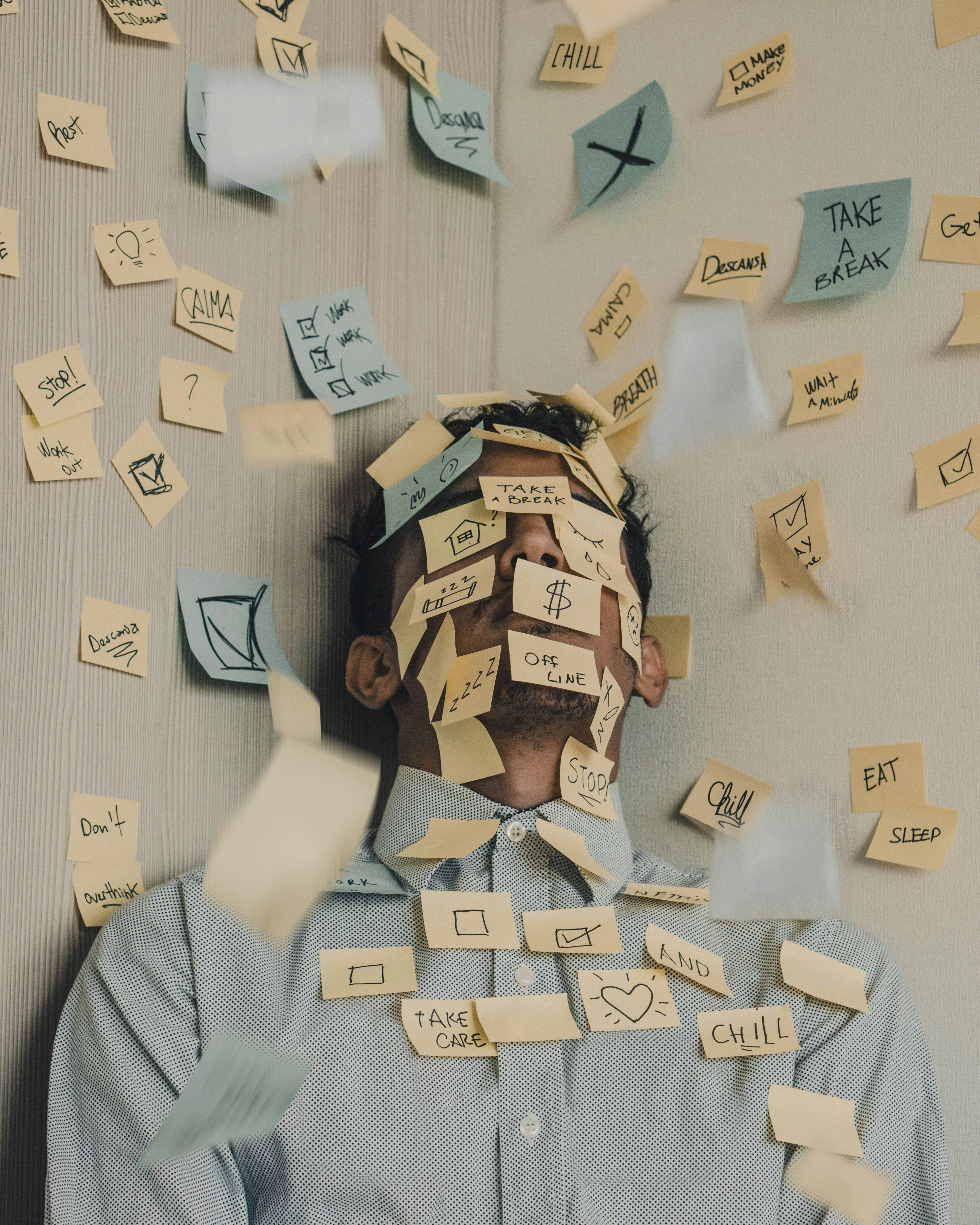One of the most effective ways to manage stress and anxiety is through the practice of mindfulness. Mindfulness involves paying attention to the present moment and accepting it without judgment. By focusing on the here and now, individuals can reduce the tendency to dwell on past events or worry about the future, which are common triggers for stress and anxiety.
There are various mindfulness techniques that can be incorporated into your daily routine. One simple yet powerful technique is deep breathing. Taking slow, deep breaths can help activate the body’s relaxation response and calm the mind. This can be done by inhaling deeply through the nose, holding the breath for a few seconds, and then exhaling slowly through the mouth. Repeat this process several times, allowing yourself to fully immerse in the sensation of each breath.
Another mindfulness technique that can be beneficial is body scanning. This involves systematically focusing on each part of the body, from head to toe, and observing any sensations or tension that may be present. By bringing awareness to the body, individuals can identify areas of tension and consciously release it, promoting a sense of relaxation and ease.
In addition to mindfulness, engaging in regular physical activity can also be highly effective in reducing stress and anxiety. Exercise releases endorphins, which are natural mood-boosting chemicals in the brain. Whether it’s going for a jog, practicing yoga, or participating in a team sport, finding an activity that you enjoy and can engage in regularly can significantly improve your overall well-being.
Furthermore, maintaining a healthy lifestyle can play a crucial role in managing stress and anxiety. This includes getting enough sleep, eating a balanced diet, and avoiding excessive caffeine and alcohol consumption. Lack of sleep and poor nutrition can exacerbate stress and anxiety symptoms, while a well-rested body and nourished mind can better cope with life’s challenges.
Lastly, seeking support from others can be immensely helpful in managing stress and anxiety. Whether it’s talking to a trusted friend or family member, seeking professional help from a therapist or counselor, or joining a support group, sharing your feelings and experiences with others can provide a sense of relief and perspective. It’s important to remember that you don’t have to face stress and anxiety alone, and there are resources available to help you navigate through difficult times.
In conclusion, stress and anxiety are common challenges that many individuals face in today’s fast-paced world. However, by incorporating mindfulness techniques, engaging in regular physical activity, maintaining a healthy lifestyle, and seeking support from others, it is possible to effectively manage and reduce these feelings. By taking proactive steps towards self-care and well-being, individuals can regain control over their lives and experience a greater sense of peace and happiness.
1. Prioritize Self-Care
One of the most important steps in managing stress and anxiety is to prioritize self-care. Taking care of yourself physically, mentally, and emotionally is crucial for maintaining a healthy balance in life. Here are a few self-care practices that can help:
- Exercise regularly: Engaging in physical activity releases endorphins, which are natural mood boosters. Find an exercise routine that you enjoy, whether it’s going for a walk, practicing yoga, or participating in a team sport. Regular exercise not only improves your physical health but also enhances your mental well-being by reducing stress and anxiety levels.
- Eat a balanced diet: Proper nutrition plays a significant role in managing stress and anxiety. Focus on consuming whole foods, such as fruits, vegetables, lean proteins, and whole grains. These foods provide essential nutrients that support brain function and help regulate mood. Avoid excessive consumption of caffeine and processed foods, as they can exacerbate feelings of stress and anxiety.
- Get enough sleep: Lack of sleep can contribute to feelings of stress and anxiety. Aim for 7-9 hours of quality sleep each night to promote optimal mental and physical well-being. Establish a relaxing bedtime routine, such as reading a book or listening to calming music, to prepare your body and mind for a restful sleep. Creating a conducive sleep environment, with minimal distractions and comfortable bedding, can also improve the quality of your sleep.
- Practice relaxation techniques: Incorporate relaxation techniques into your daily routine, such as deep breathing exercises, meditation, or taking a warm bath. These practices help activate the body’s relaxation response, which counteracts the stress response. Deep breathing exercises can be done anywhere and anytime, providing immediate relief from stress and anxiety. Meditation, on the other hand, involves focusing your attention and eliminating the stream of thoughts that may be causing stress. Taking a warm bath can also be a soothing way to relax your muscles and calm your mind.
- Engage in hobbies: Dedicate time to activities that bring you joy and relaxation. Engaging in hobbies not only provides a break from daily stressors but also promotes a sense of fulfillment and accomplishment. Whether it’s painting, gardening, playing a musical instrument, or cooking, find activities that you genuinely enjoy and make time for them regularly.
- Cultivate social connections: Building and maintaining strong social connections is essential for emotional well-being. Surround yourself with supportive and positive individuals who uplift you and provide a sense of belonging. Engage in meaningful conversations, spend quality time with loved ones, and participate in social activities that align with your interests. These connections can serve as a source of emotional support and help alleviate stress and anxiety.
By implementing these time management strategies, you can enhance your productivity, reduce stress, and achieve a greater sense of balance in your life. Remember that effective time management is a skill that can be developed with practice and consistency.
3. Practice Mindfulness
Mindfulness is a powerful technique that can help reduce stress and anxiety by bringing your attention to the present moment. By practicing mindfulness, you can cultivate a greater sense of calm and clarity. Here are some ways to incorporate mindfulness into your daily life:
- Meditation: Set aside a few minutes each day to practice meditation. Find a quiet and comfortable space, focus on your breath, and let go of any racing thoughts. Meditation can help you develop a deeper awareness of your thoughts and emotions, allowing you to observe them without judgment.
- Be present: Pay attention to the present moment and engage fully in whatever you are doing. Avoid dwelling on the past or worrying about the future. One way to practice being present is through mindful eating. Instead of rushing through meals, take the time to savor each bite, noticing the flavors, textures, and smells of the food.
- Practice gratitude: Take a moment each day to reflect on the things you are grateful for. This can help shift your focus from negative thoughts to positive ones. You can keep a gratitude journal and write down three things you are grateful for each day. This simple practice can help you cultivate a more positive mindset and increase your overall happiness.
- Engage your senses: Pay attention to the sensations of your body, the sounds around you, and the sights and smells in your environment. This can help ground you in the present moment. For example, when you are taking a walk, notice the feeling of your feet hitting the ground, the sound of birds chirping, and the smell of fresh air. Engaging your senses can help you fully experience the world around you.
In addition to these practices, you can also incorporate mindfulness into everyday activities such as washing dishes, brushing your teeth, or even taking a shower. By bringing your attention to the present moment and fully engaging in these activities, you can turn them into opportunities for mindfulness. Remember, mindfulness is a skill that takes time and practice to develop, so be patient with yourself as you embark on this journey.
Enter your email to get the Latest Updated Exploring News and Topics
Discover more from atozexplore.com
Subscribe to get the latest posts sent to your email.







